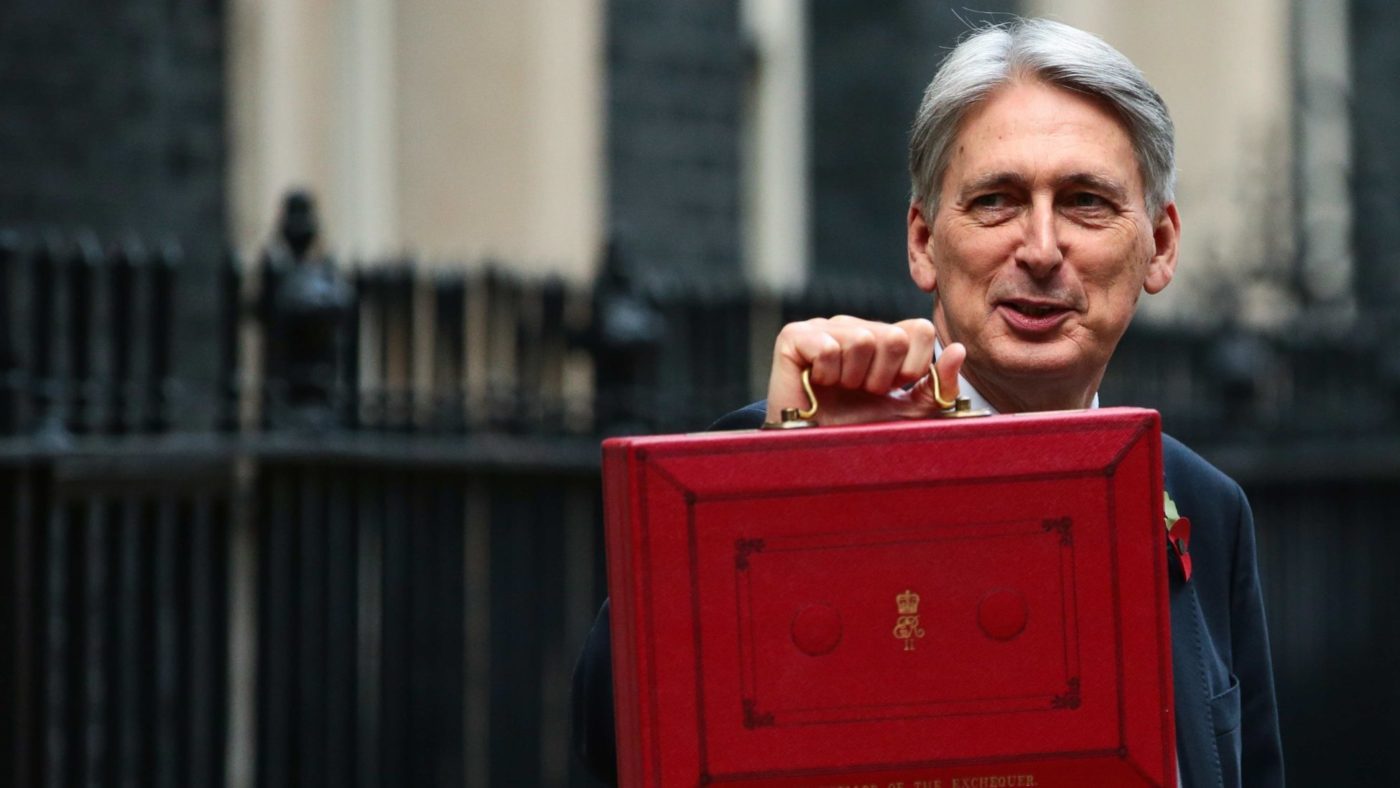Well, the 2018 Budget was not quite as much of a non-event as many had forecast.
Stronger than expected tax revenues and slightly faster growth provided Philip Hammond with a little extra wriggle room, and he gave himself even more by deciding not to balance the budget. That allowed him to meet the £20bn NHS spending boost pledge whilst bringing forward a manifesto promise to cut income tax (achieved via a rise in both the personal allowance and the higher rate threshold) to April 2019 — so income tax falls just as we leave the EU.
As well as slightly upgrading the growth forecasts (to around 1.5 per cent per year for the next five years — by no means stunning or even satisfactory growth, but if that’s all the Brexit downturn we get most voters will wonder what all the fuss was about), the Office for Budget Responsibility forecasts real wage growth for each of the next five years. If that comes through, by the time of the next General Election the Conservatives should be a whole lot more popular with wage-earners.
Despite the deficit rising in 2019/20 (to 1.4 per cent of GDP from 1.2 per cent in 2018/19), driven by his various give-aways, Hammond forecast the deficit falling back to 0.8 per cent of GDP by 2023/24, still not balanced but not far off, either. That should allow government debt-to-GDP to drop from 85 per cent last year to 74 per cent in 2023/24. Not low enough, but on its way.
Total managed expenditure is scheduled to rise in real terms (around 1.2 per cent per annum), but fall relative to GDP (from 38.2 per cent in 2018/19 to 37.9 per cent by 2023/24).
As well as all the figures, there was the usual politics. Extra defence spending, with Hammond emphasising the importance of the UK being the second highest spender in NATO and some digs at Corbyn’s anti-nuclear credentials. Money on war memorials. Money to commemorate Nazi death camps, with the Chancellor leaving a lot politically unsaid about anti-Semitism, but knowing those who had ears to hear heard. Lots and lots of local and regional measures (shout-out to the DUP). Many painful gags, of which the worst was an extended set of Carry On style jokes about extra “relief” provided for local toilets. The National Living Wage is going up too.
We also had a new digital services tax — a Google/Amazon tax, shooting another Labour fox — based on the UK profits (not revenues) of big tech companies, but it will apparently only raise £400 million and may be replaced by an OECD measure in due course.
Aside from bringing forward income tax cuts and meeting the NHS pledge, the other big-ticket item was nearly £3bn on Universal Credit, illustrating how nervous the government has become about the issues failed implementation could create for them.
Citizens of Canada, Australia, New Zealand, the US and Japan will be able to enter the UK via e-passport gates, to signal our renewed openness to the world. There was plenty about boosting investment in technology and enhancing productivity (though he spared us his usual detailed productivity lecture). He declared an end to new PFI deals (PFI RIP, as it were), shooting one of Labour’s foxes.
And the Treasury Twitter account was also keen to note — though this wasn’t in the speech itself — that the Budget announces a new 50p coin to commemorate Brexit. (There was a 50p coin in 1973 to commemorate our entry into the EU and one in 1998 to commemorate 25 years of EU membership, so it would perhaps have been strange not to mark our exit in the same way.)
Overall, his message was that “Austerity is coming to an end but discipline will remain” — a line he was so pleased with that he said it twice in a row, just in case we hadn’t heard.
This was a typical Hammond performance. Not flashy. Deliberately corny. Lots of the detail across a vast range of policy that politicians usually avoid and hence respect when they see it, because they know someone has to do it. Not too much on Brexit. Not too much Eeyore. Just enough politics.
He told us that if there is no deal, the Spring Statement will be upgraded to a full Budget — rather flying in the face of his reassurance that last March’s Budget would be his last Spring one, but there you go. He also claimed that if there is a deal, growth will be upgraded and that he has kept back some fiscal room to allocate in that eventuality. We shall cross that bridge if and when we come to it.
Overall, this is a Budget that I would expect most Conservative MPs to consider a job reasonably well done. If the economy ticks along at 1.5 to 2 per cent growth per year, wages grow in real terms, income tax is cut, NHS spending is boosted, and attention turns to tomorrow’s technologies and the UK’s openness to the world, Hammond will truly be able to say (in the terms he put it in one of his worse but more repeatable jokes) “Fiscal Phil says Fiscal Rules OK!”


